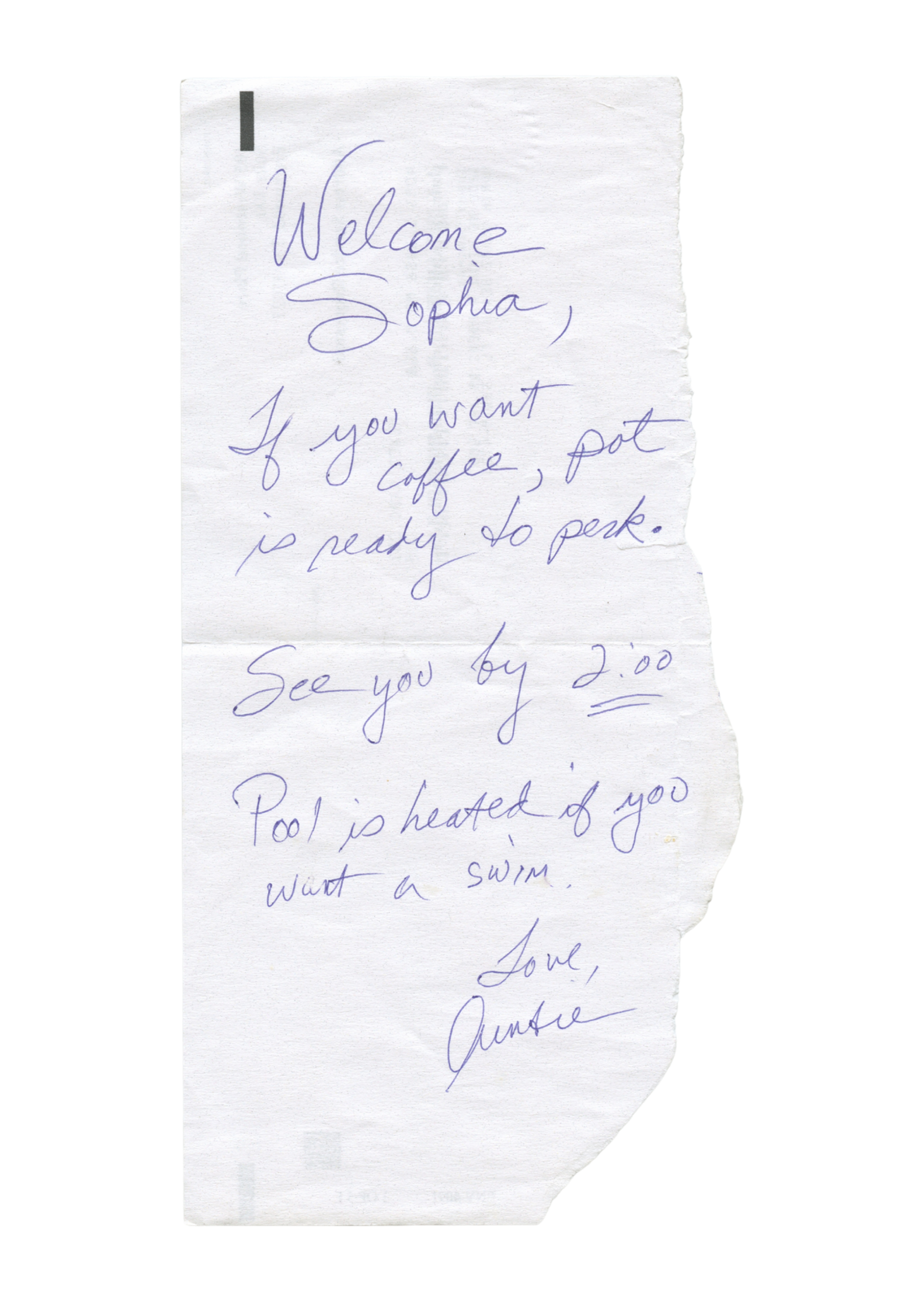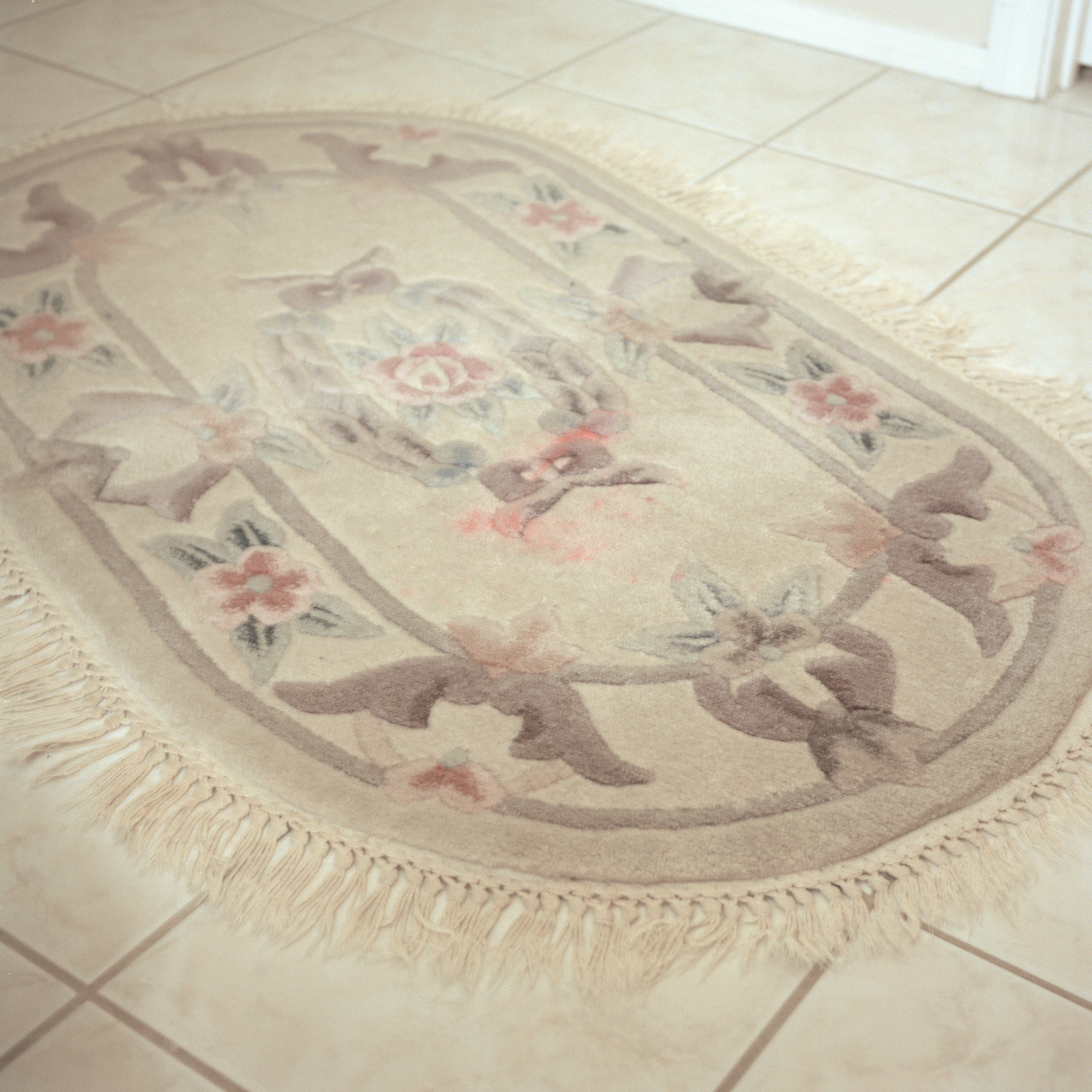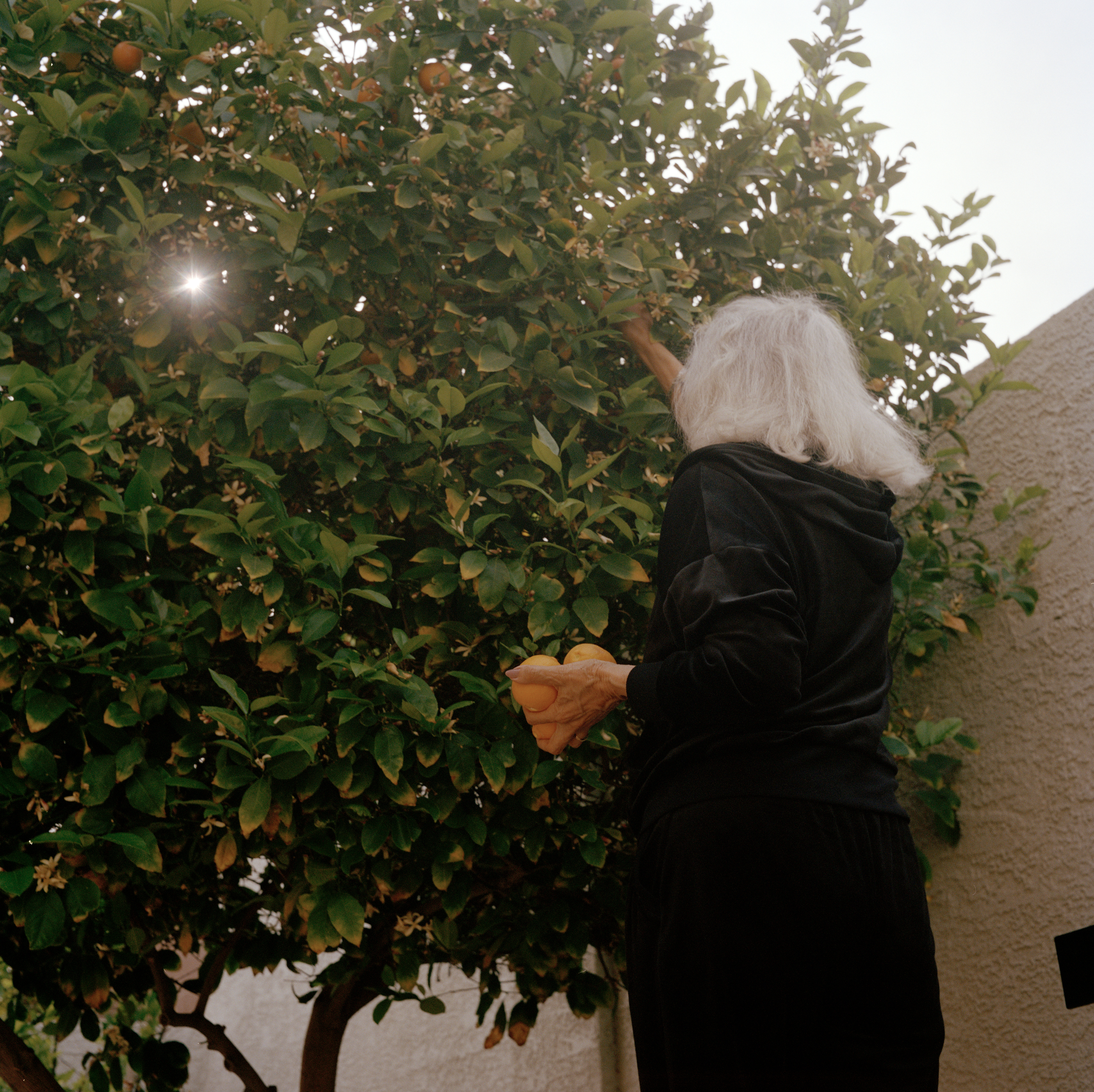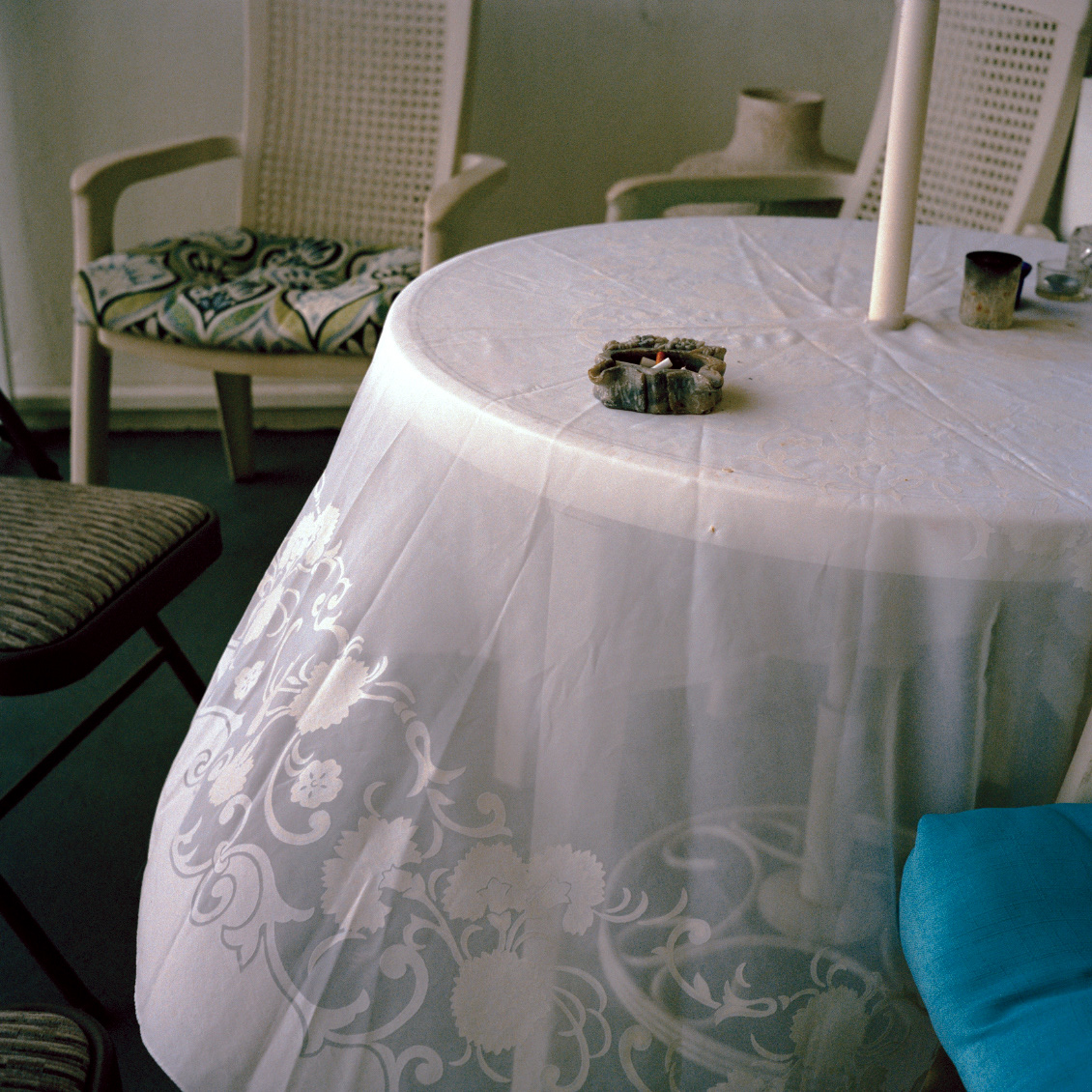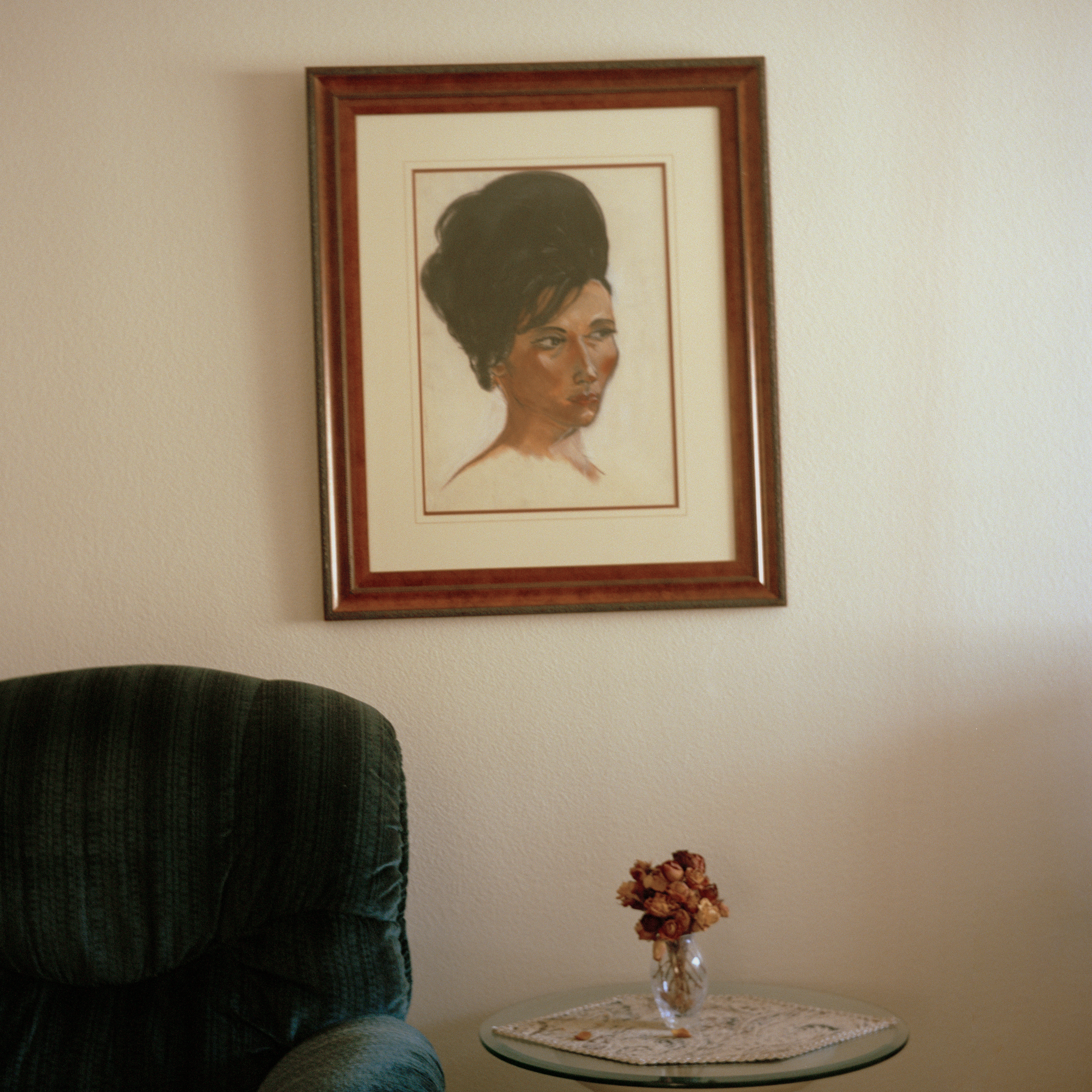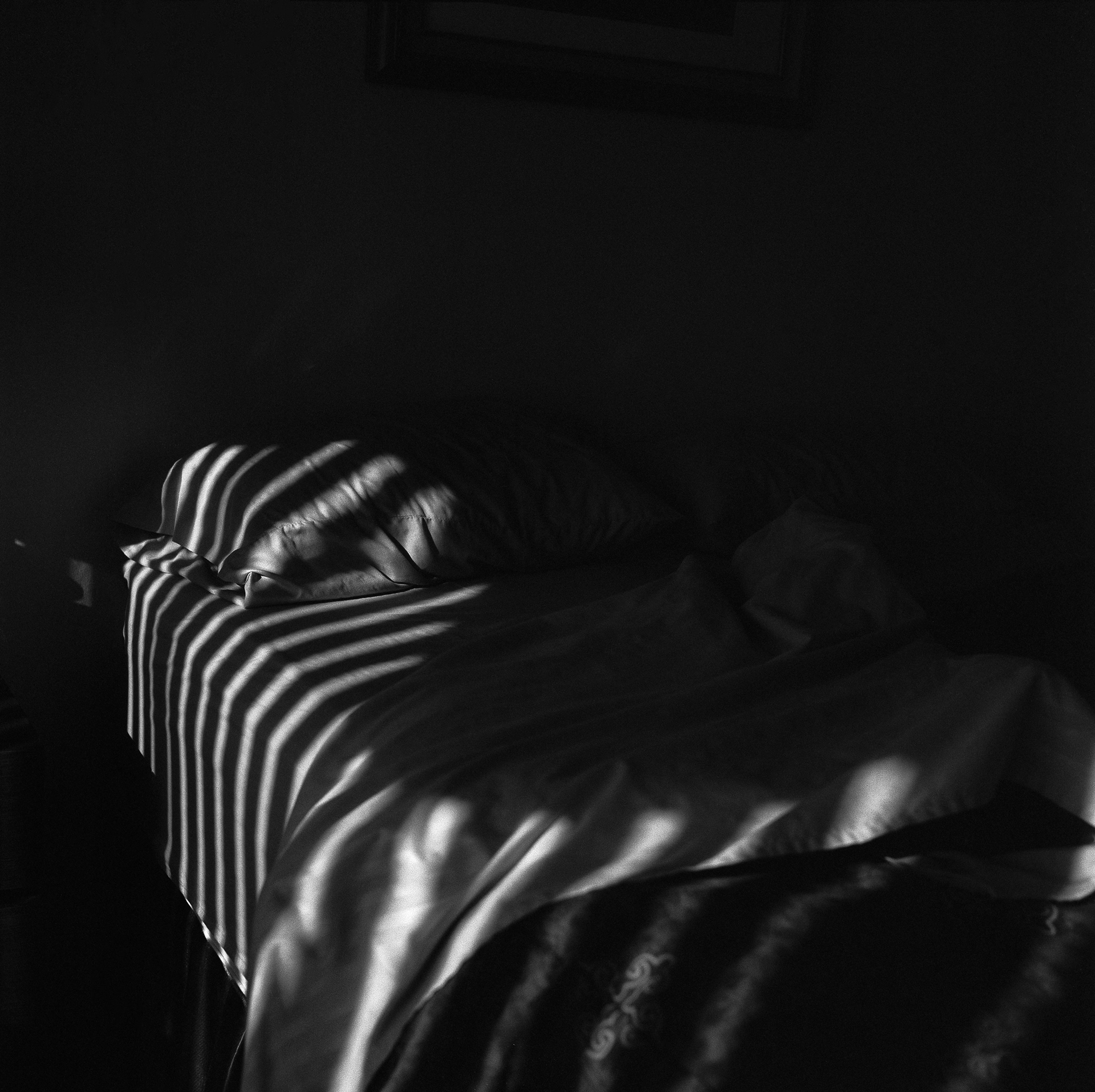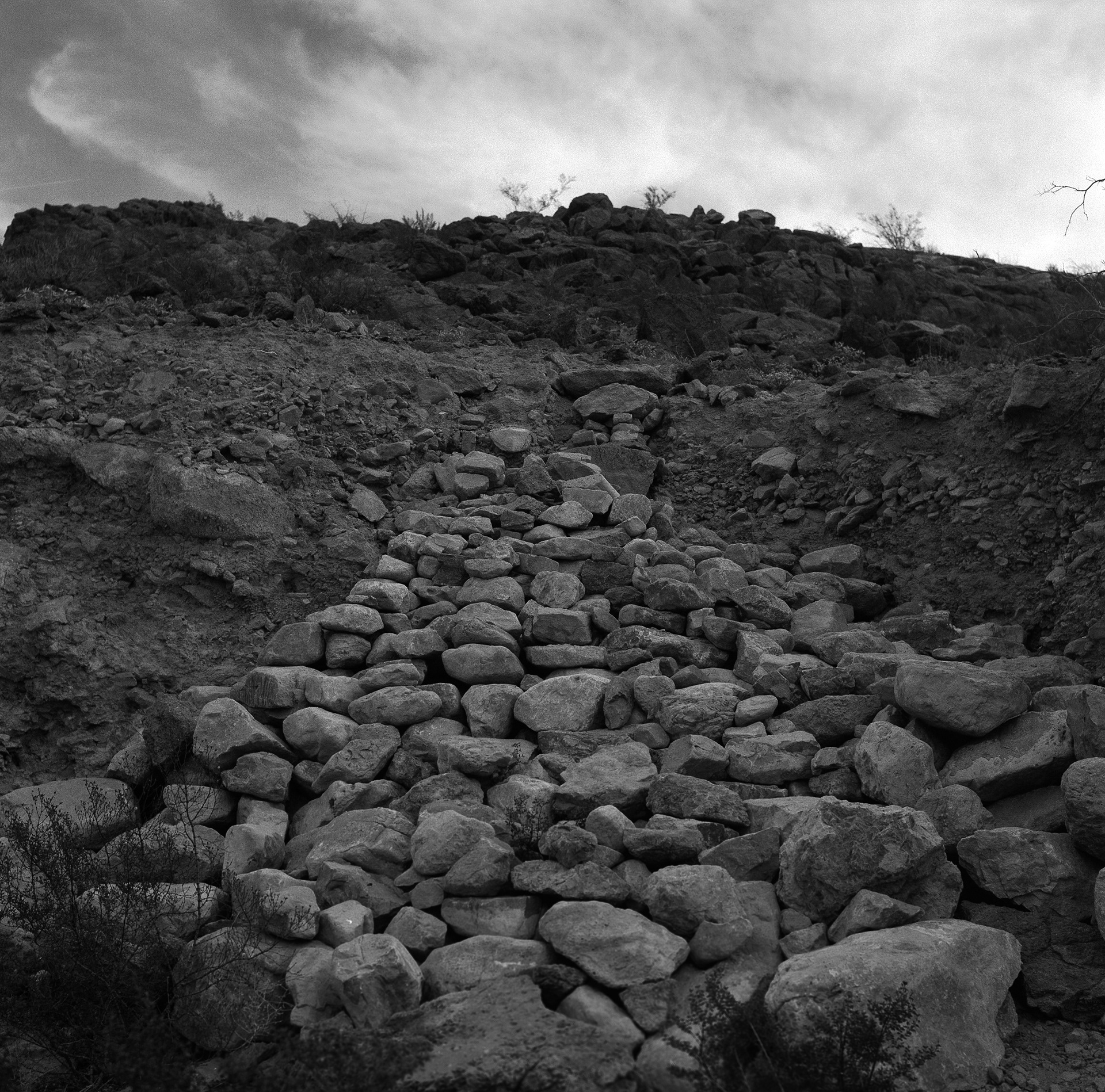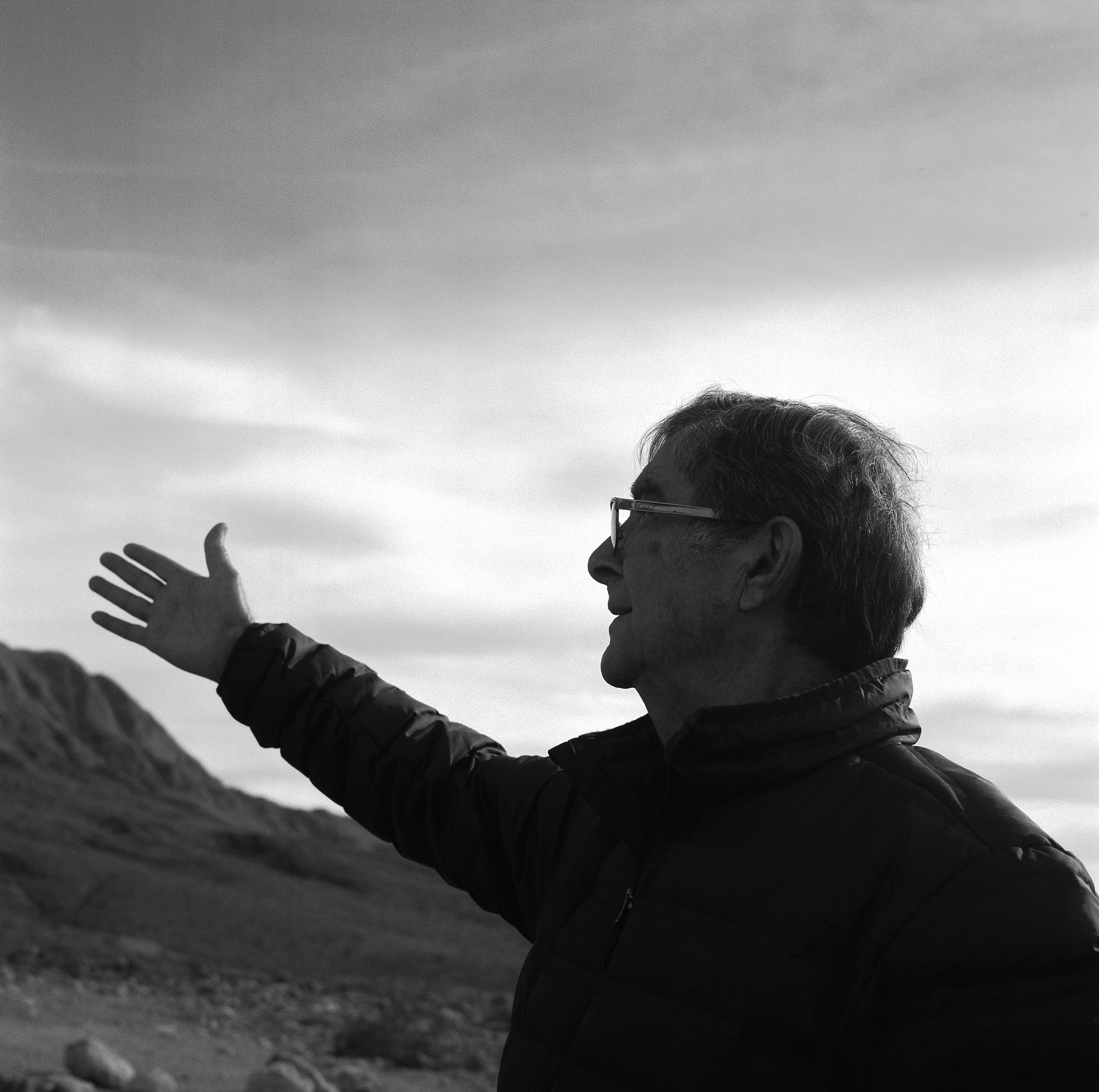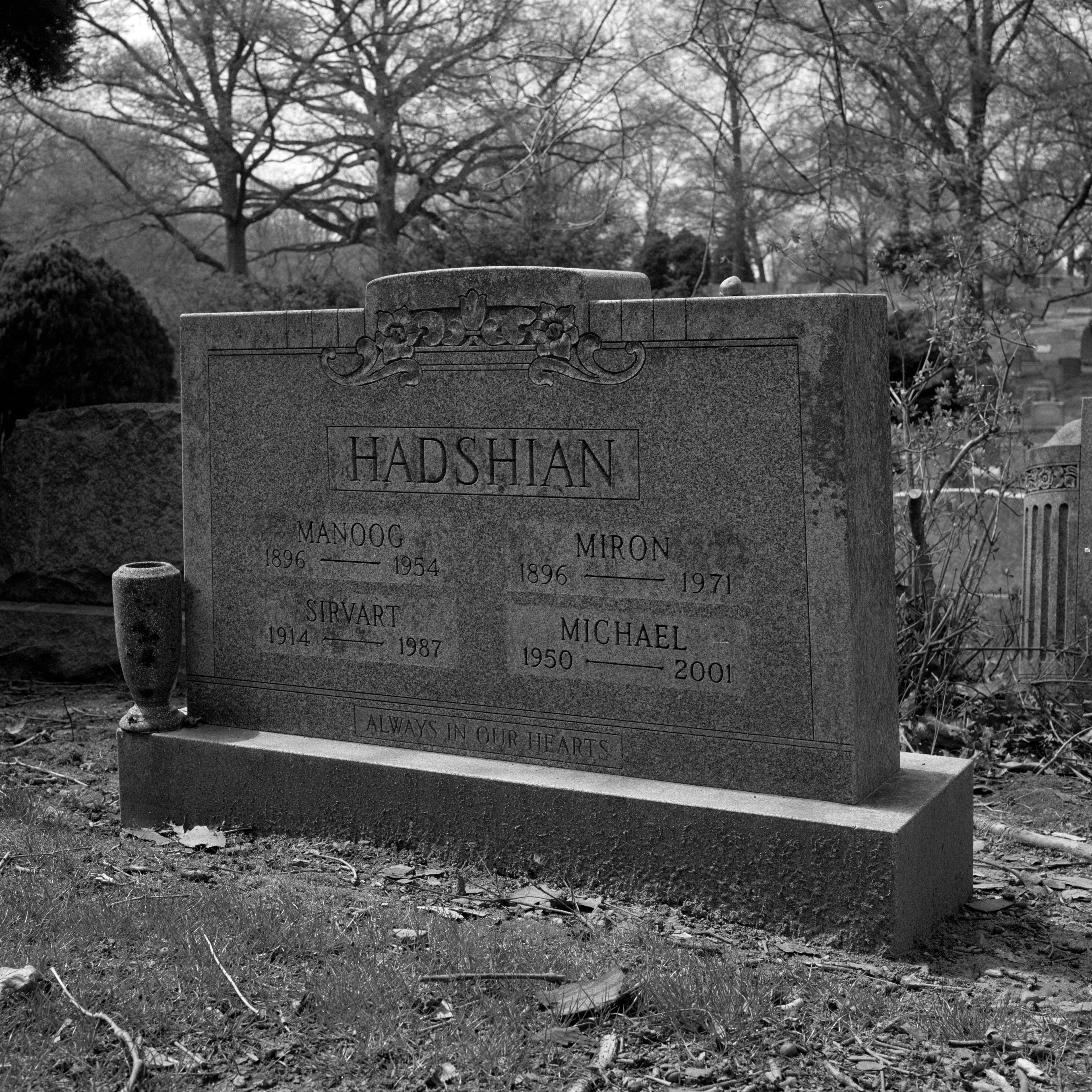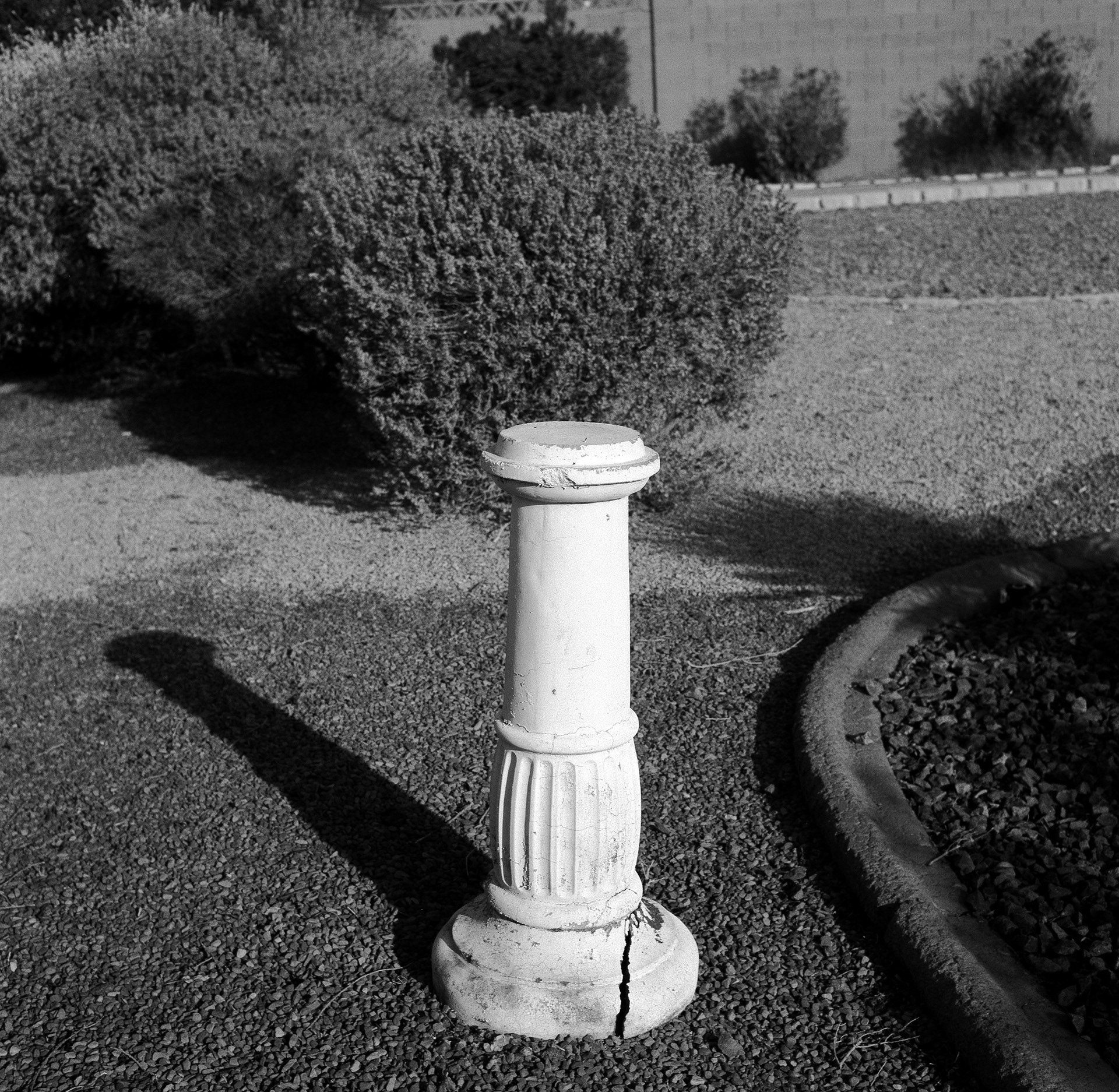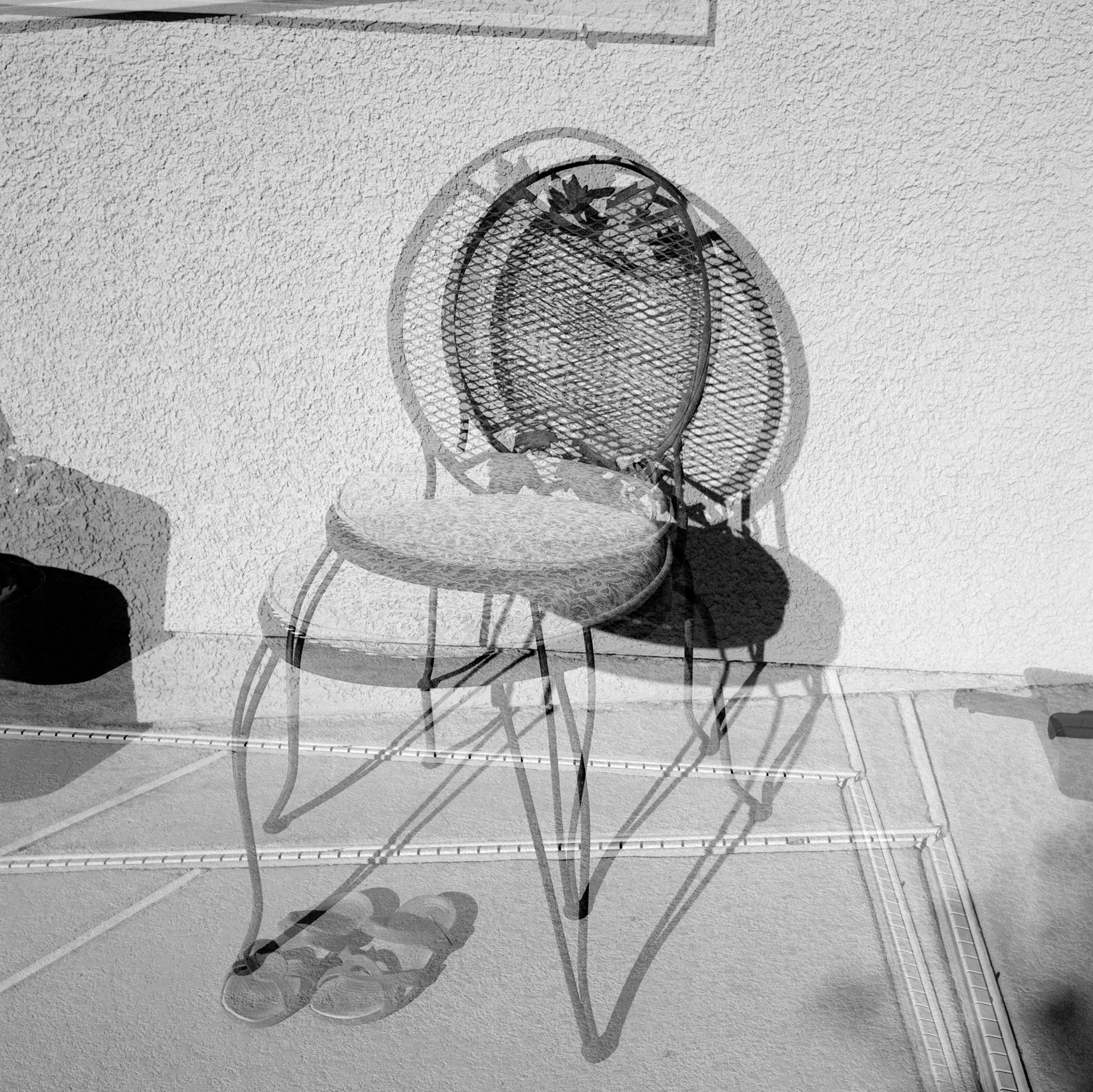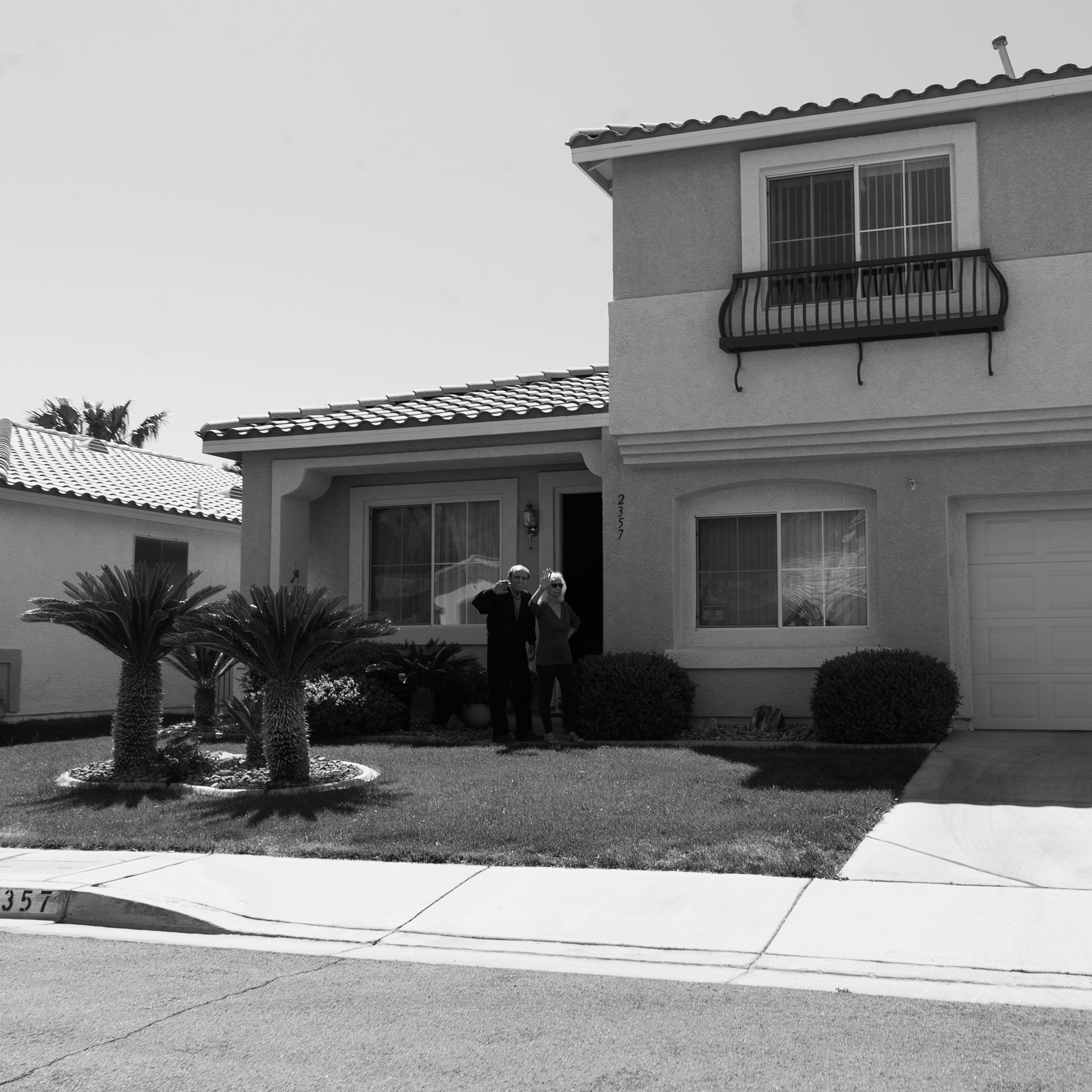Paradise Garden (2024– )
“The present is the instant in which the wheel of the speeding car just barely touches the ground. And the part of the wheel that still hasn’t touched will touch in that immediacy that absorbs the present instant and turns it into the past.”
—Clarice Lispector, Água Viva
With ancient Iranian origins, a traditional paradise garden is a rectangle divided into four quarters, centered around a pool.
Paradise Garden (2024–) is a study of a place. It appears like an oasis and smells of jasmine and chlorine. There are people here, though most of the time, they seem to be somewhere else.
Like ghosts, they move through rooms filled with objects that seem stuck in time: plastic flowers, upside-down demitasse cups, a ceramic ashtray from a casino that closed years ago. It is a study of life unfolding between myth and memory— a refuge adorned with things from the past, where nostalgia is mistaken for clarity. It is an observation of what it means to live as if waiting for something to return.
They say they remember, as they retell the same stories. But they don’t, not exactly. The memories come in flashes, like the wheel of a speeding car: once remembered, already rewritten.
